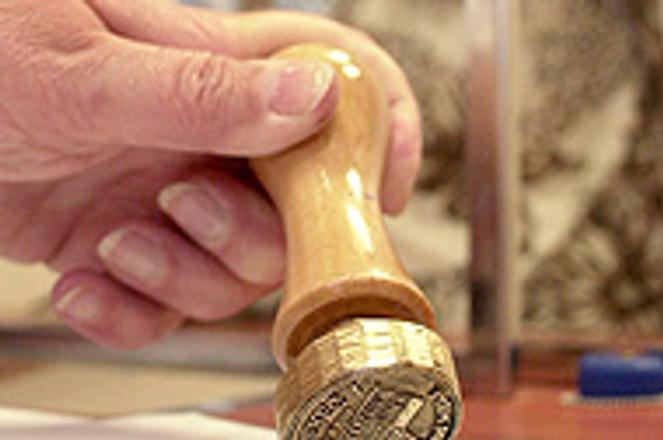Congrats won't mail your letter.
photo: ČTK
A FRIEND of mine, also an American in Slovakia, went to the post office the other day. He needed to send an important letter first class, but forgot to review the phrase to communicate that. When the clerk asked how he wanted it mailed, he looked her in the eye, smiled, and said: "Všetko najlepšie."
Unfortunately, although that literally translates as "Everything the best", its actual meaning is closer to "Best wishes". Needless to say, the clerk just look puzzled.
Apart from being a good joke, this story highlights the different ways Slovaks and English speakers express congratulations.
In English-speaking countries, congratulations are offered at many milestones in our lives. Your friend has a baby, graduates school, gets married, or scores a new job - pretty much every accomplishment can be greeted with a word or two. Got a new car? Congratulations! Going abroad? Best wishes!
Birthday wishes are also offered in a brief, formulaic way. We sing Happy Birthday, which is now familiar all around the world because the lyrics are blessedly simple and easy to learn, despite the achingly difficult "th" sound. English speakers hear it ringing from the rafters (duní to miestnosťou) on all birthdays. In Slovakia, I yell it at the top of my lungs, happy to be singing an English song.
Slovaks have a translated version, with the lyrics changed to fit the metre and reflect the traditional hope for happiness and health. It is mostly used in dubbed English movies because Slovaks have their own song, Živjó, for special celebrations. It is equally simple and is made up of only two phrases: živjó (live long!) and mnoga leta (many years).
But apart from the songs, Slovak customs on such occasions are very different. At each celebration, etiquette dictates a sort of receiving line for the honoured guest. In this line, each person in turn has a moment to give their "best wishes", shake the person's hand, kiss both cheeks, and look into their eyes. These personal wishes vary slightly, but in general include: veľa zdravia a šťastia (good health and happiness), dobrú robotu a veľa peňazí (good job and a lot of money), dobrého partnera/rku (good boyfriend/girlfriend).
While the stream of goodwill gushes on, whether it be in a pub, office, or at home, eye contact is retained, the handshake continues as your arms pump up and down, and everyone wears a smile of gratitude.
As an American, I was surprised by the formality of this ceremony. I was more accustomed to a quick hug, happy birthday, where's the cake? speed. When I first came to Slovakia, I blundered through many of these congratulatory speeches trying to make myself unique, but in the end found it easier to stick to tradition.
You might wish a just married person veľa šťastných spoločných rokov (a lot of happy years together), a friend with a newborn nech je zdravé a robí radosť (may it be healthy and bring joy), a recent graduate veľa životných a pracovných úspechov (a lot of success in life and at work) and anyone on their name day, as an easy way out, veľa všetkého dobrého (a lot of everything good) or nech sa ti splnia všetky sny (may all your dreams come true).
If you know them well, you start with the words Prajem ti or Želám ti (I wish you), if they are a new friend or a colleague you switch to the more formal Prajem Vám, Želám Vám.
And by the way, if you want something mailed first class, say: Prvou triedou, prosím. (First class, please.)
Best wishes!

